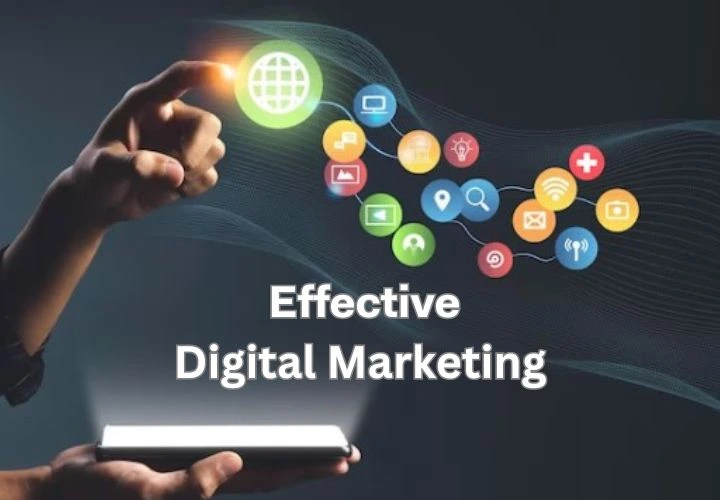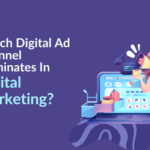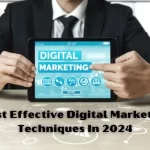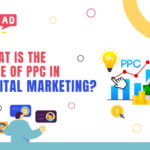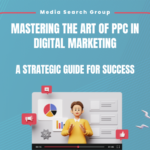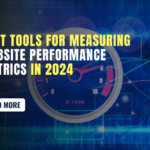How Can Advertising Be Effective Through Digital Marketing?
Recently updated: April 24th, 2024
Creating an effective digital marketing strategy is crucial for small businesses in the modern era, where online presence and visibility play an important role in success.
In the digital marketing world, advertising holds a significant position because it improves brand awareness, drives engagement, and converts leads into potential customers.
With the vast reach and precise targeting offered by digital platforms, advertising has evolved from a one-way broadcast to an interactive, engaging experience for consumers.
In this blog, we will discuss digital marketing and how we can enhance advertising through it by examining key components, strategies, and emerging trends that contribute to success.
What Is Digital Marketing?
Digital marketing encompasses a broad spectrum of online channels and platforms through which businesses can connect with their target audience.
Digital marketing aims to build brand awareness, drive traffic, generate leads, and strengthen customer relationships through targeted and personalized approaches.
It relies on data-driven insights and analytics to optimize campaigns and measure performance metrics like engagement, conversions, and return on investment (ROI). Digital marketing is done by planning through an analysis of costs, customer requirements, and other relevant concerns.
The process moves forward by choosing the right promotional activity that reaches users through digital advertising, whose success is eventually calculated based on sales.
Components of digital marketing:
- Search Engine Optimization (SEO)
- Content Marketing
- Social Media Marketing
- Email Marketing
- Pay-Per-Click (PPC) Advertising
Advantages of digital marketing:
- Digital marketing helps to gather geographical information, allowing businesses to reach global audiences.
- It enables precise targeting based on demographics, interests, behaviors, and more, ensuring messages resonate with specific audience segments.
- Metrics and analytics tools provide insights into campaign performance, enabling real-time adjustments and optimizations.
- Compared to traditional marketing, digital strategies often offer more cost-effective solutions, especially for smaller businesses.
Overall, digital marketing is defined as using numerous digital tactics and channels to connect with customers and fulfill their needs. The new technologies and trends of digital marketing encourage companies and brands to change their marketing strategies and set their budgets.
Email has become a popular marketing tool nowadays for digital marketing. Then the focus shifted to search engines like Google, which allowed businesses to optimize their websites and get themselves noticed in relevant online searches.
Why Is Digital Marketing Important?
Digital marketing is a valuable element for your business’s growth and helps you establish a strong online presence.
89 percent of marketers say methods like search engine optimization (SEO) are successful.
Build and increase online presence
To drive the desired results for your business, you need to build a strong online presence. You will reach more leads who want your products or services. This is one of the main reasons why digital marketing is important.
Over 7.7 billion people use the Internet across the globe, which means there are many people interested in your brand, and a good digital marketing strategy for your brand will help reach those people.
The majority of people use the internet to search for businesses and brands, which highlights the need for digital marketing, so your brand must have a strong online presence. If you fail to do so, there is a high chance that you will lose potential customers.
Digital marketing strategies help you reach a larger audience faster and in an easier way than traditional marketing methods. You can opt for multiple digital marketing channels to expand your brand’s online presence, which includes:
- Search engines
- Video
- Social media marketing
- Webinars
- Pay-per-click (PPC) ads
Cost-effective
Another crucial benefit of digital marketing is that it allows you to acquire new customers at a very low cost compared to traditional marketing.
Customer acquisition cost means the total amount of money your business spends on average to acquire a new customer. Many traditional marketing methods, such as calling, billboard ads, and posters, are expensive and non-trackable.
Content marketing costs 62% less than traditional marketing methods.
If your marketing cost is high, then you can implement many strategies to increase growth and maximize the ROI for your business.
Low-cost digital marketing enables you to:
- Target relevant audiences
- Generate high-quality leads
- Increase conversion rates
- Track and optimize campaigns in real-time
Target ideal audience
Through digital marketing, you can target a wide and ideal audience for your business. The ability to target your audience in a better way is one of the reasons why digital marketing is important for businesses.
You can market directly to people who have an interest in your products and want to buy them. You do not have to wait for people to see your marketing efforts, like in traditional marketing. In digital marketing, people get information about your business within a few seconds and can easily contact you.
In digital marketing, you can target your audience more precisely than in traditional marketing. Then you can use all the important information about your audience in your digital marketing campaigns to make them successful.
Track and monitor campaigns
Another benefit of digital marketing is that you can easily track and monitor your campaigns and optimize them for better results. When you invest time and money into your campaigns, you should also know how they are performing in the market.
Through digital marketing, the tracking process becomes easy, which allows you to adapt and drive better results.
With traditional methods, it is difficult to know the results of your campaign. You have to ask person to person about your ads to whoever visits your store. This process is complex, time-consuming, and less effective.
But with digital marketing, you do not need to ask about your ad campaigns from person to person. Every campaign you run is trackable. You can easily track a campaign’s ROI and other factors to analyze if the outcome is desirable or not.
You can examine metrics like clicks, likes, shares, comments, and many more. The type of metrics you monitor will depend on the medium and what you want to measure.
High return on your investment
A successful business has a high return on investment, and through digital marketing, you can easily achieve it for your business. You will get the desired results when you apply these digital marketing techniques to your business.
Email marketing has one of the highest ROIs out of all other digital marketing methods. For every $1 spent, email marketing generates $36 in ROI.
A high return on investment will provide you with a great opportunity to grow in the market effectively. If your return on investment is increasing, then you can implement many other strategies for your business to make it successful.
Also Read: Why Do Small Businesses Fail At Digital Marketing?
How Digital Marketing Makes Advertising Effective
Digital marketing offers plenty of tools and approaches that empower advertisers to reach specific audiences, personalize interactions, measure impact, and optimize campaigns in real-time.
Through detailed targeting
- Precision with demographics
Precision in demographic targeting refers to the accuracy of reaching a specific audience based on demographic criteria. It ensures that ads are delivered to a narrowly defined group, enhancing relevance and engagement.
Digital marketing allows advertisers to target specific demographics, from age and gender to interests and behaviors, ensuring that ads are served to the most relevant audience segments.
- Geo-targeting and localization
Geo-targeting involves delivering content to users based on their geographic location and local relevancy. Localization implements marketing strategies for specific regions, considering the cultural environment and language.
Through geolocation data, ads can be made for local audiences, maximizing relevance and increasing the chances of conversion.
- Personalized messaging
By using data analytics, personalized ads can be crafted based on user preferences and browsing history, creating a more engaging and relevant experience for the audience.
Through engagement and interaction
- Interactive content
Interactive content engages users through active participation, such as quizzes, polls, and interactive videos. It allows two-way communication, increasing user involvement and time spent on a platform.
This dynamic approach enhances brand awareness and the user experience and often results in higher conversion rates.
- Through social media engagement
Social media engagement measures the level of interaction and response from users on social platforms. It includes likes, comments, shares, and clicks, indicating audience interest. High engagement maintains brand loyalty, amplifies reach, and drives conversions.
Opting for social media platforms allows for direct engagement with customers through comments, shares, and direct messages, building relationships and trust.
- User-generated content (UGC)
Encouraging users to create and share content related to the brand increases a sense of community and authenticity, amplifying the reach of advertising efforts.
Through measurable metrics and analytics
- Data-driven insights
Data-driven insights involve analyzing and using data to make informed decisions. By examining user behavior, trends, and performance metrics, marketers gain valuable information to optimize strategies.
Digital marketing provides plenty of metrics – click-through rates, impressions, conversions, etc. – allowing advertisers to measure the success of campaigns with precision.
- Real-time optimization
Real-time optimization involves adjusting campaigns and strategies based on live data and performance metrics. It allows marketers to respond instantly to changing trends, user behavior, and market conditions, ensuring campaigns remain relevant and effective, ultimately improving outcomes and maximizing ROI.
With access to real-time data, adjustments to campaigns can be made easily, and performance can be optimized based on the insights gathered.
- Acknowledge customer journey
This method allows assigning value to different points in a customer’s journey. It helps marketers understand the impact of various channels and interactions on conversions.
Models like first-click, last-click, or detailed insights into how marketing efforts contribute to a user’s decision optimize resource allocation.
Understanding the customer journey and attributing conversions helps in allocating resources effectively and enhancing ROI.
Through flexibility and Cost-effectiveness
- Budget control
Budget control helps in managing and allocating financial resources effectively across various channels and campaigns. It involves setting and monitoring spending limits, optimizing cost-per-click, and adjusting allocations based on performance data to ensure efficient use of resources and achieve desired marketing goals within financial constraints.
Digital marketing offers flexibility in budget allocation, allowing advertisers to adjust spending based on performance and goals.
- Quick adaptation
The ability to modify campaigns in response to market changes or audience preferences is a significant advantage of digital advertising.
Through enhanced brand storytelling and content strategy
- Brand consistency
Brand consistency in digital marketing involves maintaining uniform messaging, design, and tone across all online channels. It builds brand recognition, trust, and loyalty by presenting a cohesive brand identity.
Digital marketing facilitates consistent brand messaging across multiple channels, ensuring a unified brand experience for consumers.
- SEO and content optimization
Strategies such as SEO help enhance content visibility and ensure that the brand’s message reaches the intended audience effectively.
Use various digital channels that allow diverse content formats, from blog posts and videos to infographics and podcasts, enabling richer and more engaging storytelling.
Through current trends and innovations
- AI and predictive analytics
The integration of AI and machine learning enables predictive analytics, allowing for more personalized and efficient targeting.
AI and predictive analytics in digital marketing involve using the latest AI search updates and algorithms to analyze large datasets, predict future trends, and optimize marketing strategies.
By using machine learning, marketers can anticipate customer behavior, personalize content, and make data-driven decisions, enhancing campaign efficiency and overall performance.
- Voice search and AI assistants
Voice search and AI assistants in digital marketing use natural language processing to interpret spoken queries and provide relevant results. Marketers optimize content for voice search, adapting to conversational queries.
Optimizing for voice search and utilizing AI assistants are emerging trends that reshape how consumers interact with brands.
- Immersive technologies
Augmented reality (AR) and virtual reality (VR) are defining the consumer experience, providing innovative strategies for advertising and engagement.
Conclusion
The effectiveness of advertising through digital marketing comes from the ability to precisely target audiences, engage them, measure results accurately, and adapt to trends. As the digital world grows rapidly, embracing trends like AI and enhanced personalization will further nurture paid advertising in digital marketing.
Digital marketing has defined advertising well. It will present a combination of tools and strategies that empower brands to connect with their audiences in profound and effective ways. From targeted audience segmentation to campaign management and performance tracking, scalable digital marketing pricing packages ensure that businesses achieve measurable results from their digital advertising investments.
Through precise targeting, interactive engagement, data-driven insights, and adaptability, digital marketing has reshaped how advertising campaigns are conceived, executed, and measured.
This blog helps businesses understand the transformative impact of digital marketing on advertising, emphasizing its ability to connect with audiences, drive engagement, adapt to the dynamic digital world, and overcome problems for future stability and effectiveness in advertising strategies.
Latest posts by Vijaya Tyagi (see all)
Important Tips & Tactics to Boost Your Website Reputation!! - October 16, 2025
14 Years, Thousands of Campaigns, Countless Stories – And We’re Just Getting Started - September 29, 2025


